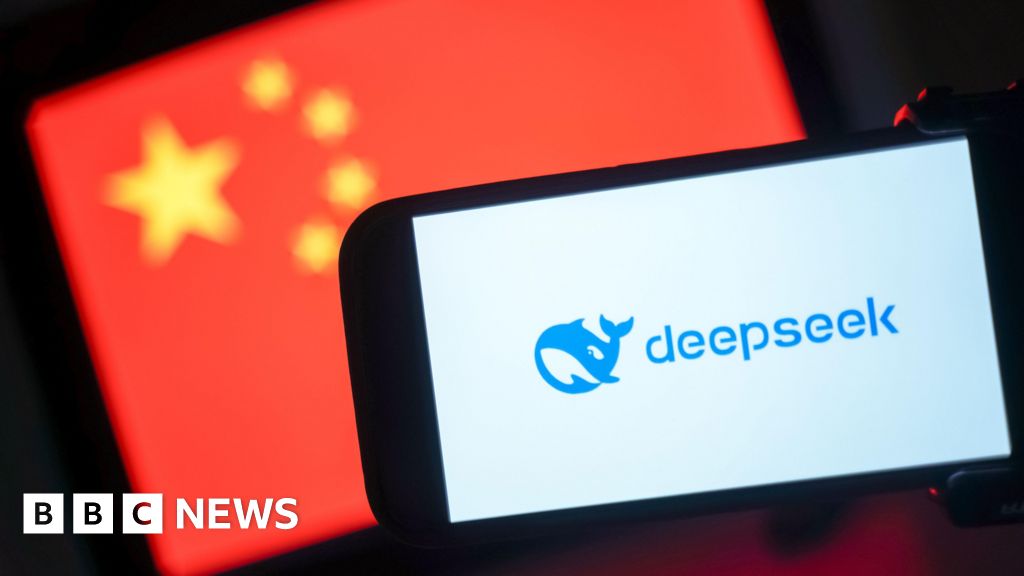OpenAI Raises Alarm Over DeepSeek: The Challenge of Competition in AI
By: João da Silva & Graham Fraser
Business & technology reporters
The tech world has been buzzing this week after a new player entered the scene, raising eyebrows and concerns in equal measure. DeepSeek, a Chinese company, has launched an app that mimics the performance of ChatGPT, but reportedly at a fraction of the cost. The emergence of DeepSeek has put the spotlight on the competitive landscape of artificial intelligence (AI) and has led to serious complaints from industry leader OpenAI.
OpenAI claims that rivals, particularly from China, are leveraging its innovations to make significant strides in developing their own AI capabilities. Bloomberg reports that Microsoft, a key investor in OpenAI, is investigating whether proprietary data has been used improperly by DeepSeek.
OpenAI’s apprehensions resonate with David Sacks, the newly appointed White House "AI and crypto czar." On Fox News, he speculated that DeepSeek might have utilized techniques to extract knowledge from OpenAI’s models, a method known as knowledge distillation. "There’s substantial evidence that what DeepSeek did here is they distilled the knowledge out of OpenAI’s models," said Sacks. He also indicated that the U.S. could soon see leading AI companies taking steps to combat this issue.
The National Security Angle
In recent months, the U.S. has ramped up its efforts to protect its technological advancements, particularly concerning national security. Current regulations aim to limit China’s access to advanced chips and direct investments back to the states. At his confirmation hearing, Howard Lutnick, Trump’s proposed nominee for Commerce Secretary, expressed concerns about intellectual property theft and the need for more robust measures to safeguard U.S. AI assets.
OpenAI voiced its concerns, stating that companies in China and elsewhere are "constantly trying to distill the models of leading US AI companies." As part of these efforts, the company emphasized the necessity of working closely with the government to protect valuable AI models.
Questions Over Model Training
The cost-effective claims of DeepSeek’s model training have come under scrutiny as well. Naomi Haefner, an assistant professor at the University of St. Gallen, suggested that the transparency of DeepSeek’s training processes is questionable. "It is unclear whether DeepSeek really trained its models from scratch," she stated. If OpenAI’s allegations hold weight, DeepSeek’s claims about cheap training could be misleading at best.
Crystal van Oosterom, an AI Venture Partner at OpenOcean, echoed this sentiment by noting that while DeepSeek has built upon publicly available research, it remains uncertain how problematic this “building on” is, particularly given the frequent accusations against U.S. firms for disrespecting intellectual property.
Security and Ethical Concerns
As the U.S. government assesses the implications of DeepSeek’s rapid rise, Karoline Leavitt, White House press secretary, noted that officials are exploring potential national security concerns tied to the Chinese app. This comes off the heels of the U.S. Navy’s reported ban on DeepSeek’s applications due to ethical and security fears.
Moreover, data safety experts caution users against the potential risks associated with DeepSeek, especially given that the app collects vast amounts of personal data stored on servers located in China. Additionally, the company has reported being targeted by cyberattacks, which has led to temporary restrictions on new registrations.
Final Thoughts
As the AI landscape continues to evolve rapidly, the rise of DeepSeek serves as both an opportunity and a challenge for established players like OpenAI. The contest for AI supremacy isn’t just about innovation but ensuring that intellectual property is respected and protected.
The AI Buzz Hub team is excited to see where these breakthroughs take us. Want to stay in the loop on all things AI? Subscribe to our newsletter or share this article with your fellow enthusiasts.




